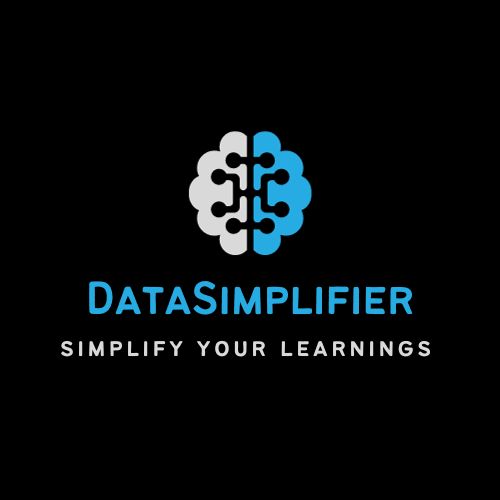Introduction
Data analytics is one of the hottest fields today, with interest from students and working professionals alike. With companies increasingly relying on data to make business decisions, the demand for skilled data analysts has increased, making this career path both promising and financially rewarding. But one question remains: how long does it actually take to become a data analyst? Be a fresh Indian student, and graduated not so long back. Whatever may be the reason and target, looking forward to shifting your careers into a Data Analyst.(become data analyst)

In this exhaustive post, we dig really deep into the timeline about what it takes to become a data analyst – its paths towards learning, what skills help you master the field and then possible challenges which may lay in front. We have questions which may have hovered around your head, questions like “How many years does it take to become data analyst?
HOW DO I BECOME DATA ANALYST IN THREE MONTHS?, and HOW HARD IS IT TO BECOME A DATA ANALYST? Well if you have been wishing you were jumping onto this cool journey into the analytics universe, well you’ve hit all the right pages of knowledge because it all begins from now. Why Data Analytics is the Best Job For You Before we jump into the timeline, it is important to understand why data analytics is such a coveted career.
In a data-driven world, an organization needs professionals who can make sense of huge amounts of data, find patterns in them, and make meaningful insights.
This demand is also reflected in the career growth rate, and India has emerged as a significant hub for analytics jobs.
So, whether you are entering a new career or are switching over, becoming a data analyst is an incredibly rewarding choice with abundant opportunities for jobs, growth, and impact.
Let’s break down the pathway of becoming a data analyst starting from the most essential skills to the realistic timelines involved.
Time Required to Become a Data Analyst
Understanding Your Educational Background and Its Impact
If you’re coming from an allied field such as engineering, mathematics, or computer science, you’ll likely bring along some basic skills in quantitative analysis into the course and thereby shorten your learning curve. The others may have to spend some more time to cover fundamental concepts in statistics and programming. The silver lining here is that the field of data analytics is essentially a skill-based profession and thus open to anybody willing to put in the effort, given one has the right resources.
Timeline of Skill Acquired
Here is the general outline of key skills and how long it may take to develop proficiency in each of them:
Programming Skills. The most vital skills acquired are Python and SQL. Learning Python basics might take a month or two, and SQL could take another month or two, especially when you start applying to real-world data sources.
Data Visualization and Analysis: Tools like Excel and Tableau are super-important. With dedicated practice, these can be learned in about a month.
Statistics and Probability: The backbone of data analytics. This may take around 1–2 months to be comfortable with, depending on prior exposure.
Machine Learning Fundamentals (Desirable but not Essential): For those interested more in deep data analysis, a foundation in machine learning would be a plus, but that would take an extra month(s).Putting all these together, with several hours a day, one would expect to learn the above skills within a 3-6 month time frame.
Practice through Project Implementation
Projects are the best way of applying what you learn and to show off your skills. Having at least 2–3 projects in your portfolio will add a huge amount of value. Plan on spending 1–2 months on project work, developing real-world examples like sales analysis, customer segmentation, or forecasting.

Common Learning Paths and Their Duration
- Degree Programs
A formal degree in data analytics, statistics, or a related field would normally be 3–4 years at the bachelor’s level and 1–2 years at the master’s level. These degrees provide excellent foundational training but are time-consuming and not the fastest way to initiate a career shift.
- Certification Courses and Bootcamps
If students are in a hurry, certifications and boot camps have become very popular. These programs are compressed, fast-paced training courses in which highly focused knowledge is imparted on the student in 3–6 months. Examples include the Data Science Specialization on Coursera and Springboard’s Data Analytics Bootcamp.
- Self-Study Timeframe
This method is suitable for those people who also study or have work. They can utilize free resources offered by YouTube tutorial and even platforms like edX for developing a skill set related to data analytics in almost 6–12 months, based on regular practice.
Challenges and Level of Difficulty
How Hard Is It to Become a Data Analyst?
Learning to be a data analyst is hard, but it is by no means impossible. Skills like coding and statistics are very discouraging at the beginning, but with constant practice, this edge disappears quite fast. The only thing that can help in times of struggles is perseverance and proper resource availability.
Some of the challenges faced are time management, maintaining motivation, and access to good resources. Success tips include a proper study schedule, joining online communities, and participating in group study sessions.
Is It Possible in 3 Months?
It is definitely possible to become a data analyst in 3 months if you already have a prior knowledge or can study really hard. Otherwise, you would need full-time commitment. If you are beginning from scratch, a 6-month plan is a more achievable goal.
Career Readiness and Beyond
- Portfolio
You absolutely need one. Develop 2–3 projects that are really disparate in scope, yet clearly demonstrating competency in data cleaning, data visualization, and statistical modeling. Use services like GitHub and LinkedIn for sharing your work.
- Networking and Mentors
A professional network can really make a difference. Get connected with industry experts through LinkedIn, attend webinars, and join groups like “Data Science in India” to be updated on trends and job openings.
- Internship and Job Search Strategy

Internships are ideal for freshers and career changers. You can first seek out small companies or start-ups for a role. Remember, with an entry-level job, you can expand your skills and climb the career ladder.
Conclusion
- Summary of Key Takeaways

Becoming a data analyst can take anything from 3 months if you have experience to 12 months if you are learning part-time. The length of time depends on an individual’s background and their own learning style, but the process is very rewarding with huge job prospects.
- Call to Action
Feeling inspired to start your data analyst journey? Join our Telegram channels for regular job updates, skill-building tips, and an interactive community. We have over 10+ Telegram groups covering various niches that are great for staying updated and motivated.3. Exclusive Community Invite Congratulations for reaching the end! You’re obviously devoted to learning. Comment your Telegram ID below, and we will send you an exclusive invitation to our premium community group-a space to connect, share resources, and learn from the experience of professionals. Let’s dive into data analytics. Begin with a good mindset, determination, and with the knowledge that consistent efforts will lead you to your destination. Good luck!
Share the post with your friends

1 thought on “How Long Does It Really Take to Become Data Analyst? Best Guide to kick-start”